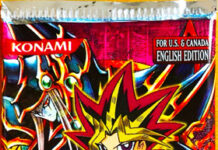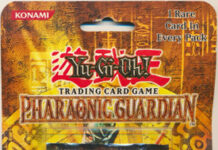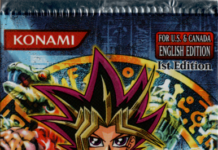Card Game Fundamentals: How to Build a Collection
A guide on how to build a physical collection, which applies to Yugioh and just about any other card game.
Buy a competitive deck in full. It could be a deck similar tournament winning decks, or really, any deck that you may really want to build. You can find one on ebay, or from someone you know that’s retiring. Calculate the cost of the most expensive cards in the deck individually. High upfront cost but bulk savings. Maybe you spend $300 on a deck that costs $400 to source individually. But you save time getting everything at once and save money on shipping.
Buy card lots. There are vendors (i.e. on ebay, other sites, and sometimes in real life) who will sell you a giant box of commons/rares, maybe the occasional foil in there. In many cases, people may get double the value worth of cards that they spent in it. Probably because these vendors save money just selling it instead of using their time sorting through every single card. Sometimes there are commons/rares that become meta and go up in value. Caution: With the random nature of this, your mileage may vary; make sure the seller you’re buying from is fair with their lots; do your research; look at review; ask around in the community).
Buy single cards. It’s cheaper and quicker to get the cards you need individually rather than spending 3-4x as much money with still no guarantee of getting what you want.
If you’re a mega collector that wants most cards in a set, or you build lots of different deck types and want to build every new archetype deck that comes out in a set, maybe you’re a unique case. But most people who are just trying to focus on making their main 1 or 2 decks the best they possibly can, buy singles. Generally, the majority of cards in a set aren’t competitive (and probably 20% of cards in a set see 80% of the competitive play anyway).
Other sealed products
- Starter decks vary in quality. Some are worth it because they have staples and reprints of expensive cards. Some are bad. Ask the community which are best at the given moment.
- Tins / special editions / collections (packages which come with packs + promo cards). Usually not worth it unless the promo card(s) are both good and worth most of the product price to where you’re basically getting the packs free or at a large discount.
Trade smart.
- Before going to an event, write a list of cards you need for your deck(s)/side decks/extra decks. This way you’re trading with intent. You’re not just trading impulsively for the sake of getting a new shiny card. You’re trading for this card for a specific reason. A list also helps the person you’re trading with know what to offer you.
- You aren’t obligated to say yes. If you’re unsure, ask the other person for time to think about it. Take as much time as you need. If you ever feel uncomfortable or pressured, say you’re not interested in trading. (Also, being willing to walk away when uninterested, in some cases, causes the person to make you a better offer).
- Don’t fear missing out. Unless maybe it’s a vital part of a competitive deck and you need it for a tournament tomorrow, it’s okay to wait. If you don’t get a card from that person, there’s other people you can get it from. Plenty of places online to get it.
- Obvious tip but check card prices online on your phone while trading.
- Being sociable, introducing yourself to strangers at an event, making friends/acquaintances can help you. They may direct you to other people who have cards you need. (Also, be ethical. If a player is newer or less knowledgeable at the game, make sure they’re getting a fair deal)
Card Game Fundamentals article series:
Game Balance
Gameplay > Card Choice
Greed
Reviewing Replays



